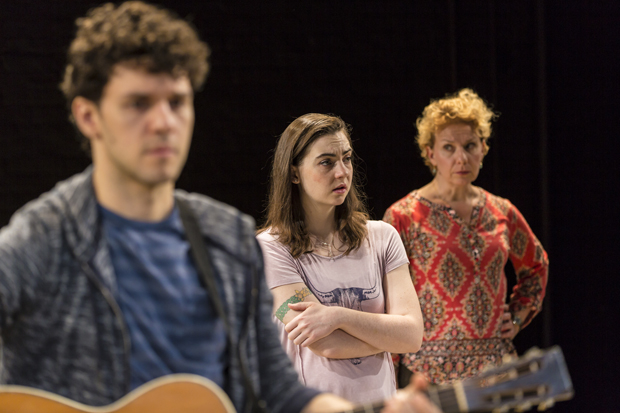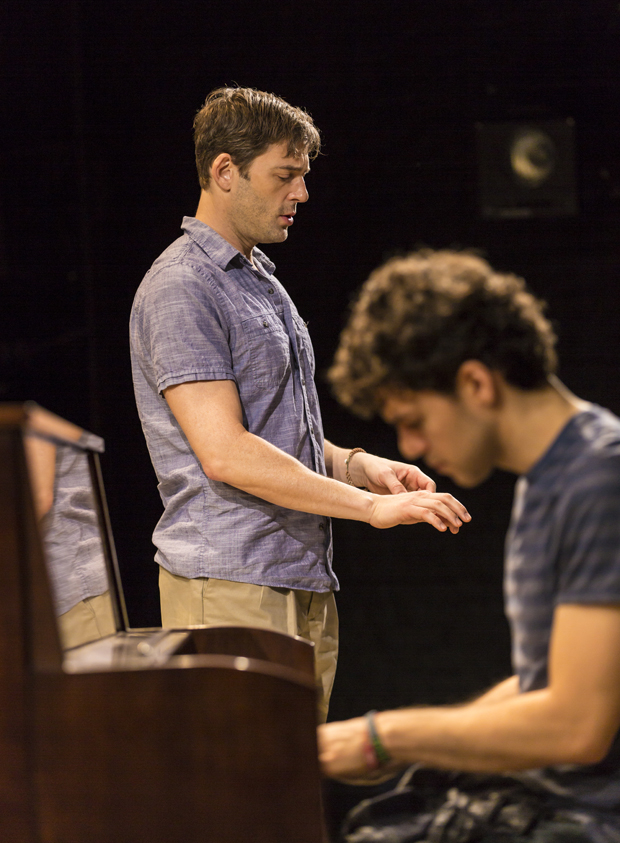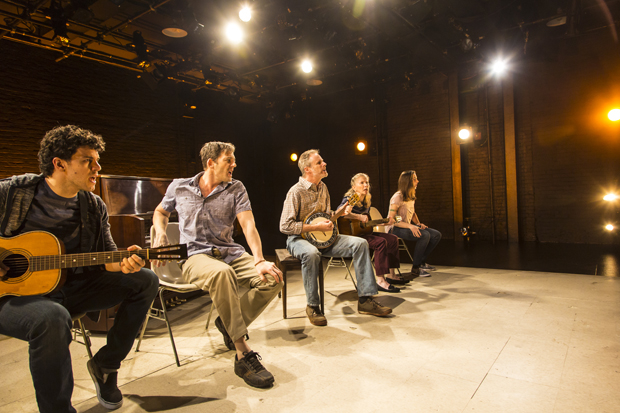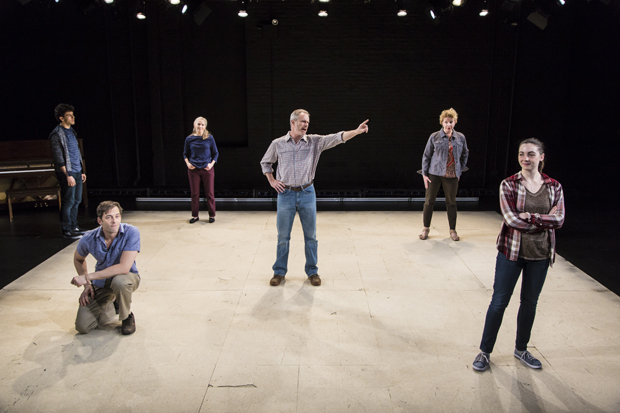A Colony of Sex Offenders Takes the Stage in America Is Hard to See
Life Jacket Theater’s latest documentary play addresses an uncomfortable subject.

(© T. Charles Erickson)
No politician has ever lost an election by being too harsh on sex offenders. Even after serving time, Americans convicted of sexually related crimes face daunting legal restrictions on where they can live, work, and travel. On top of that, the US government keeps an online database of offenders with updated photos and addresses — all Googlable. Most people are perfectly fine with this, or think these constraints don't go far enough. But Life Jacket Theatre Company forces us to reconsider this seemingly agreeable status quo in its latest documentary play, America Is Hard to See, now at HERE. Hands down, it's the bravest show currently playing in New York.
It takes place in Miracle Village, a small community in Palm Beach County, Florida, surrounded by miles of sugar cane. That isolation is purposeful as it nullifies laws forbidding convicted sex offenders from living in the vicinity of schools, parks, and other places children may gather. Miracle Village has nothing of the sort, making it an acceptable home to over 100 registered sex offenders.

(© T. Charles Erickson)
The script is based on actual interviews with the residents, three of whom we get to know well: There's music teacher Chad (Ken Barnett), new arrival Chris (David Spadora), and elder statesman Thomas (John Carlin). Each has a story about the crimes they committed, some more serious than others. We still can't help feeling compassion for all three, who seem to feel remorse for what they've done and have made a real effort to reform. Pastor Patti (Amy Gaither Hayes) certainly believes that. Otherwise, she wouldn't have invited them into her Methodist congregation, which includes her college-age daughter, Lexi (Gareth Tidball).
"This play of yours," a therapist (Joyce Cohen as persuasive voice of doubt) warns us after Chad tells us about his stint in gay conversion therapy. "It’s filled with… unreliable narrators." While writer and director Travis Russ takes a sympathetic view of the play's subjects, he is not naive about the fact that we all construct myths to help us live with ourselves and the choices we have made.
Composer and music director Priscilla Holbrook puts the lie to the notion that musical theater necessarily simplifies complex ideas. With lyrics drawn entirely from real interviews, her original songs are honest and tuneful, reminding me of similar documentary compositions by the late Michael Friedman. The one that really ignites is "Quick Burn," a rollicking bluegrass number that describes a fire set to clear away the useless part of sugar cane. "But you have to be careful," the cast sings straight at us with flames in their eyes, "or you'll burn down everything." It's an unsubtle reference to our scorched earth approach to justice, but it gets the point across.

(© T. Charles Erickson)
Everyone in the cast either sings or plays an instrument, and their powerful performances electrify an already supercharged script. Carlin is especially intense, with eyes that seem to shoot straight through us. By contrast, Spadora has the nonthreatening presence of the "shy" member of a boyband (a quality only exacerbated by the acoustic guitar strapped around his neck). As Chad, Barnett shines a tiny light through a thick fog of mistrust that, after we hear what he's been though, seems perfectly reasonable. Hayes grippingly portrays a woman trying to reconcile her faith with her protective instincts as a mom.
The six actors perform on a mostly bare stage in Russ's austere yet impactful staging. A handful of chairs and an upright piano serve as the set (also by Russ). Andrea Hood's casual costumes contour the central characters while allowing the actors to transition into smaller roles. Solomon Weisbard's bold lighting presents certain moments with clarity, while letting us know when the creators themselves are completely in the dark.

(© T. Charles Erickson)
America Is Hard to See succeeds by leaning into that uncertainty. We leave not with the pleasantly dry feeling of having our minds made up, but of being awash in doubt: Should justice be more about punishment or reform? Can we call ourselves a free country when people who have served their time are marked forever with a scarlet letter? Are there crimes which are so abhorrent that reform is impossible? In a time when everyone seems to have easy answers, Life Jacket Theatre is daringly asking difficult questions.








